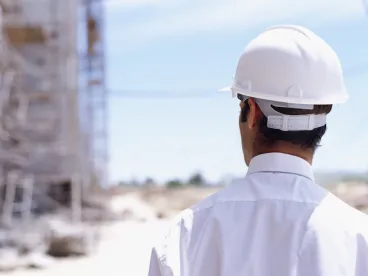On August 30, 2016, California Governor Brown signed into law AB 1793, which amends the requirements under Business & Professions Code § 7031 for a contractor to establish “substantial compliance” with state contractor licensing requirements. AB 1793 amends section 7031 by deleting the requirement that to establish substantial compliance, a contractor must show it did not know and reasonably should not have known that it was not licensed at the time it began performing the construction work or contract at issue. The amendments are to become effective January 1, 2017.
Under California Business & Professions Code 7028, persons performing contracting work in California are required to be licensed by the Contractors State License Board. As a penalty for performing construction work without being properly licensed, Business & Professions Code § 7031(a) provides that a contractor may not bring or maintain a court action to recover compensation for performance of construction work for which a license is required without alleging that it was validly licensed at all times during the performance of the contract or work for which it seeks to recover. In addition, section 7031(b) provides that persons who hire an unlicensed contractor are entitled to being a court action to force the contractor to disgorge all amounts the person paid for performance of work for which a license is required.
Contractors running afoul of section 7031 have often argued that their claims for compensation should not be barred altogether under section 7031(a), and/or that they should not be subject to disgorgement under section 7031(b), if they had “substantially complied” with the requirements of the contractor licensing statutes. Contractors have raised the defense when, for example, their license expired and they failed to timely renew it, or the license had been suspended because the contractor did not maintain workers compensation insurance. Courts have sometimes relied on the “substantial compliance doctrine” to excuse contractors from the preclusive effects of section 7031.
Even before AB 1793, the Legislature had addressed the applicability of the substantial compliance doctrine in section 7031 itself. Section 7031(e) provides that the doctrine is not applicable if the contractor has never been licensed in the state. It also authorizes a court to determine that a contractor was in substantial compliance with the licensing requirements if the contractor is able to establish certain requirements specified in the statute. Under the version of the statute prior to this amendment, to establish substantial compliance, a contractor needed to show at an evidentiary hearing that:
(1) The contractor had been duly licensed as a contractor in the state prior to the performance of the act or work at issue;
(2) The contractor acted reasonably and in good faith to maintain proper licensure;
(3) The contractor did not know or reasonably should not have known that he or she was not duly licensed when performance of the work or contract at issue commenced; and
(4) The contractor acted promptly and in good faith to reinstate his or her license upon learning that it was invalid.
AB 1793 amends these requirements by deleting requirement (3) above. That is, as amended, Section 7031 no longer requires a contractor seeking to establish substantial compliance to show that the contractor did not know or reasonably should not have known that he or she was not duly licensed at the time he or she began performing the work for which a license is required. Effective January 1, 2017, a court may determine that a contractor was in substantial compliance with the licensing requirements if the contractor is able to show at an evidentiary hearing that the contractor (1) had been duly licensed as a contractor in the state prior to the performance of the act or work at issue; (2) acted reasonably and in good faith to maintain proper licensure; and (3) acted promptly and in good faith to reinstate his or her license upon learning that it was invalid.



 />i
/>i

